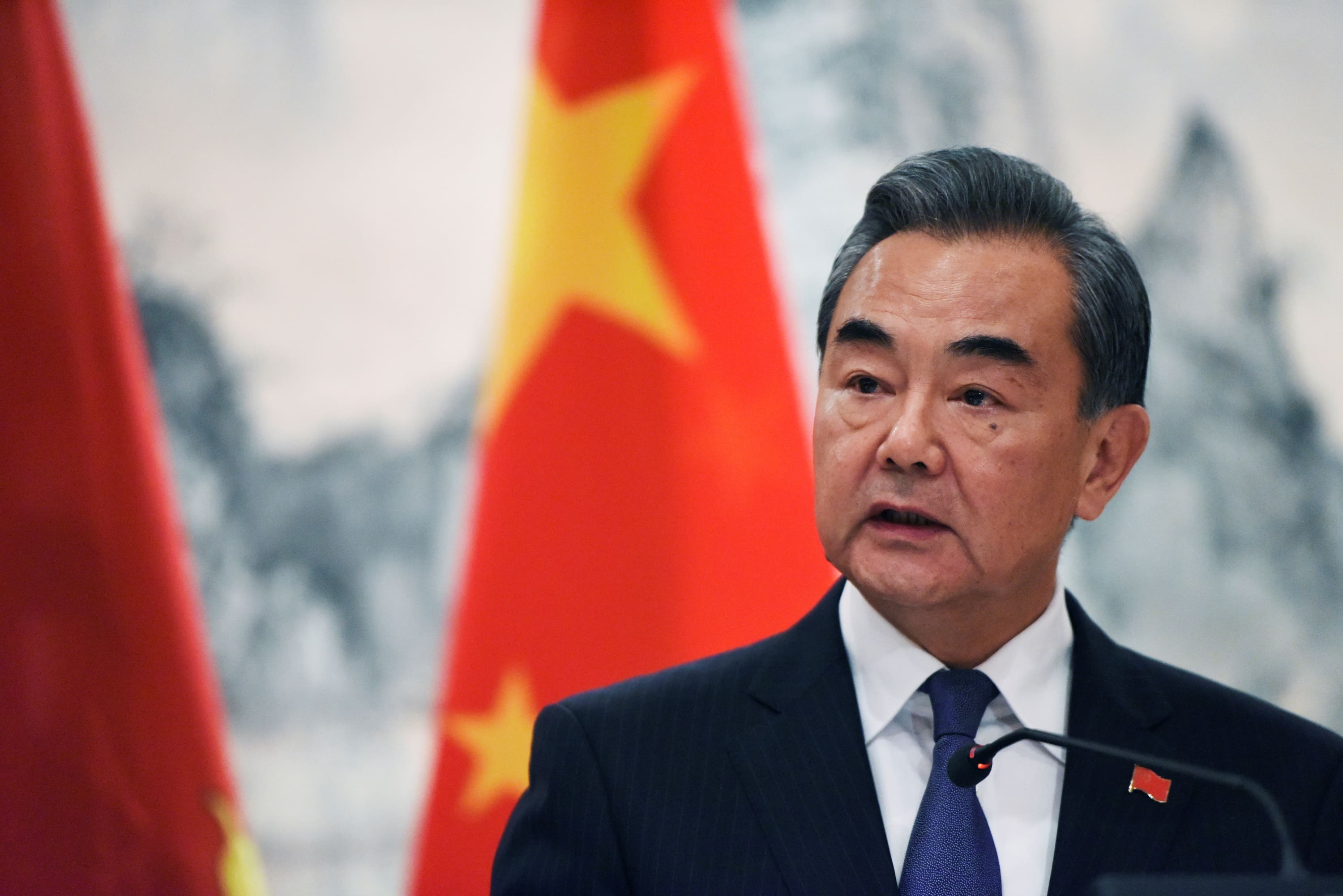
Chinese Foreign Minister Wang Yi speaks at a press conference after re-establishing diplomatic ties with Kiribati on the sidelines of the United Nations General Assembly in New York, US, September 27, 2019.
Mark Kauzlarich | Reuters
BEIJING – Chinese Foreign Minister Wang Yi on Monday called on the new US government to stop the “oppression” of Chinese technology companies, while outlining the conditions for continued US-China cooperation.
Citing concerns about national security, former US President Donald Trump has sanctioned dozens of Chinese companies over the past three years.
Chinese telecom giant Huawei is one of the most prominent companies to suffer from those orders, dropping from number one smartphone supplier to sixth place last year as a result of the sanctions.
China would like the US to abolish tariffs and sanctions on businesses and “let go of the irrational suppression of China’s technological advancements to create the necessary conditions for China-US cooperation,” Wang said, according to an official English translation shared by the Ministry of Foreign Affairs. .
Wang also called on the US to support international Chinese students and to lift restrictions on cultural groups and media outlets in America. He spoke at a forum in Beijing on the theme “Getting China-US Relations Back On Track”.
Tensions between the two countries intensified under the Trump administration, which tried to use levies and blacklists to address long-standing business complaints about China’s lack of intellectual property protection, forced technology transfer requirements, and state dominance. markets.
While it remains unclear exactly what US President Joe Biden could do, he has maintained a firm tone since taking office about a month ago.
Biden told European allies in a speech on Friday that “we need to prepare for long-term strategic competition with China.”
Last week, Treasury Secretary Janet Yellen said Trump-era tariffs would remain in effect and any changes would depend on China’s adherence to trade deals.
Policy red lines and areas for cooperation
Biden is expected to put more emphasis on human rights-related issues such as Hong Kong, Xinjiang and Tibet.
Wang reiterated on Monday that those regions are part of China’s “internal affairs” and that relations with the US can only improve if Beijing’s position is respected.
Chinese Ambassador to the US, Cui Tiankai, also said on Monday that Beijing and Washington should define the boundaries of their foreign policy, noting that China’s red line includes Taiwan, Xinjiang and Tibet, according to Reuters.
The leaders of both countries remain open to cooperation in some areas, such as reducing CO2 emissions.
Wang said the two nations could work together to tackle the coronavirus pandemic and support the global economic recovery, stressing that Beijing continues to support US companies in China.
An analysis published last week by the U.S. Chamber of Commerce, along with our investigative company Rhodium Group, found that if the U.S. sold half of its direct investment in China, U.S. investors would lose $ 25 billion a year in capital gains . The report called for targeted, rather than sweeping, policy action against China.